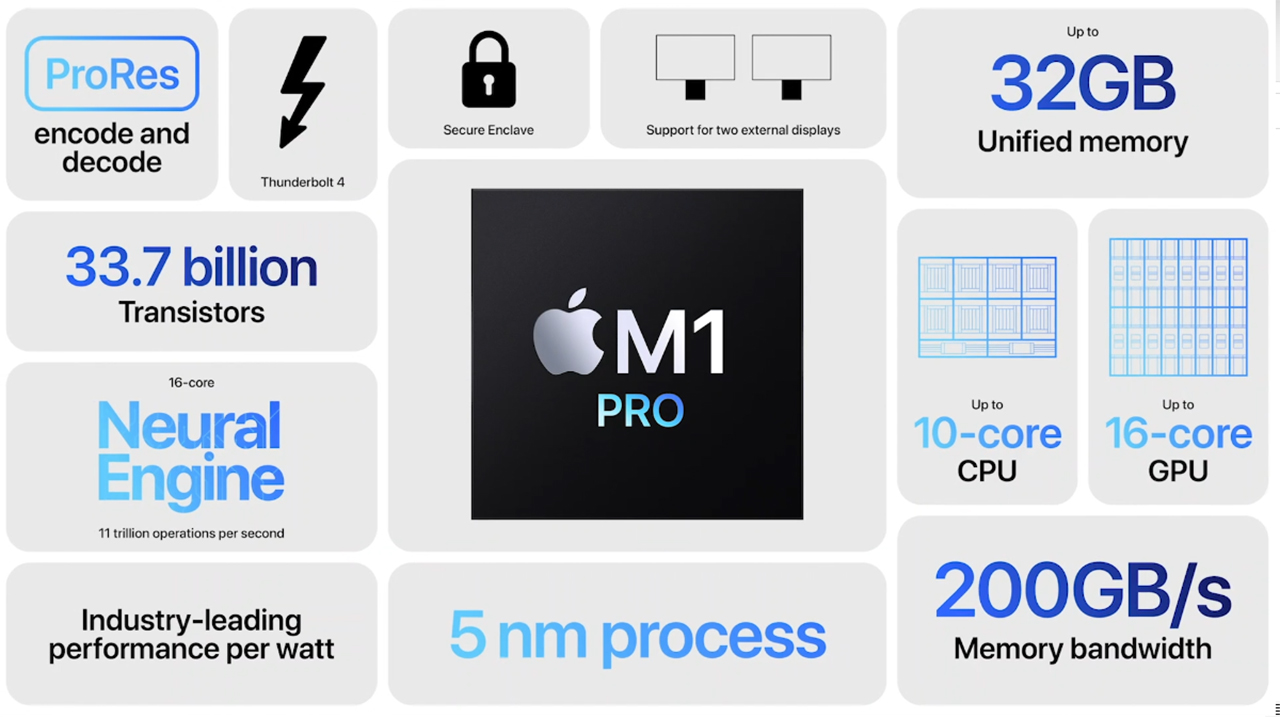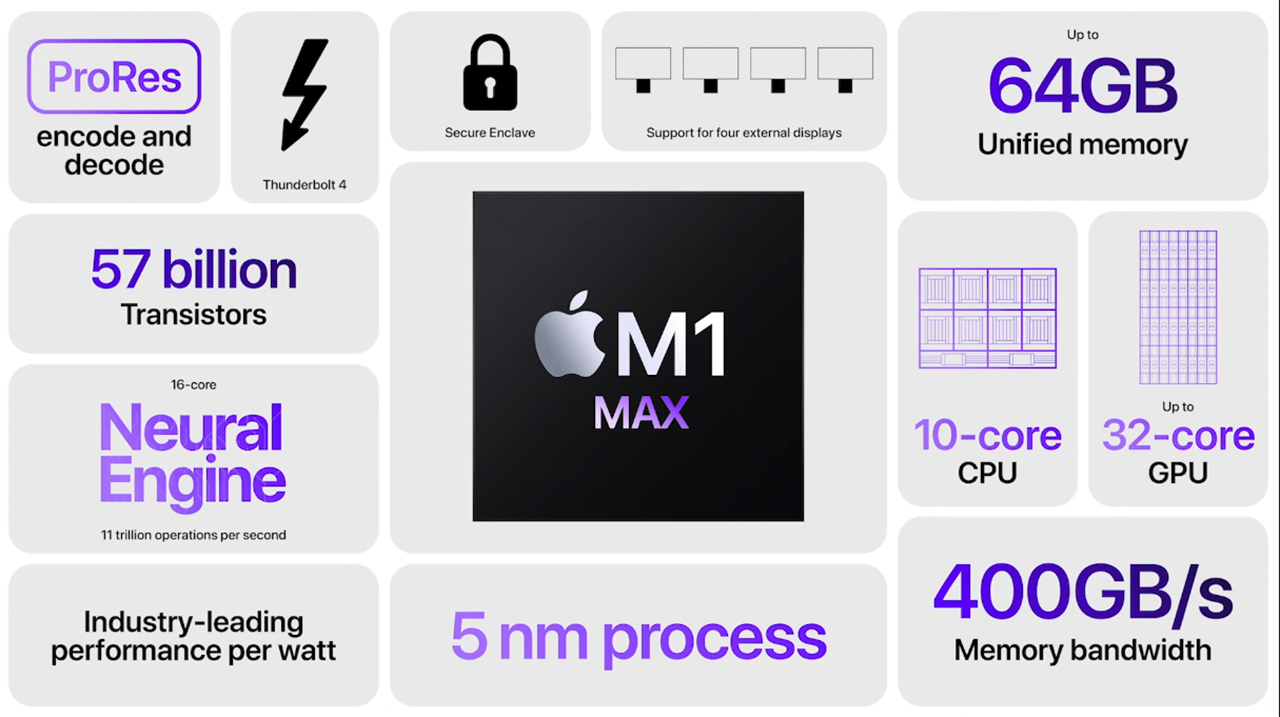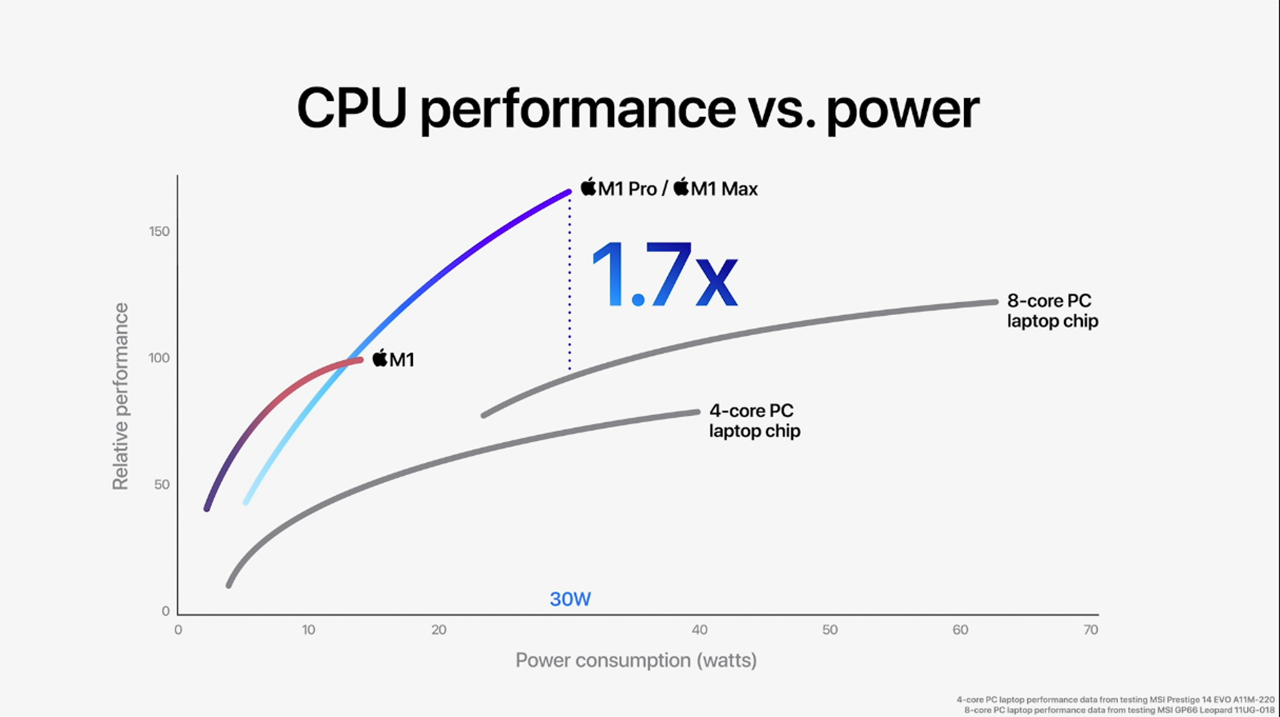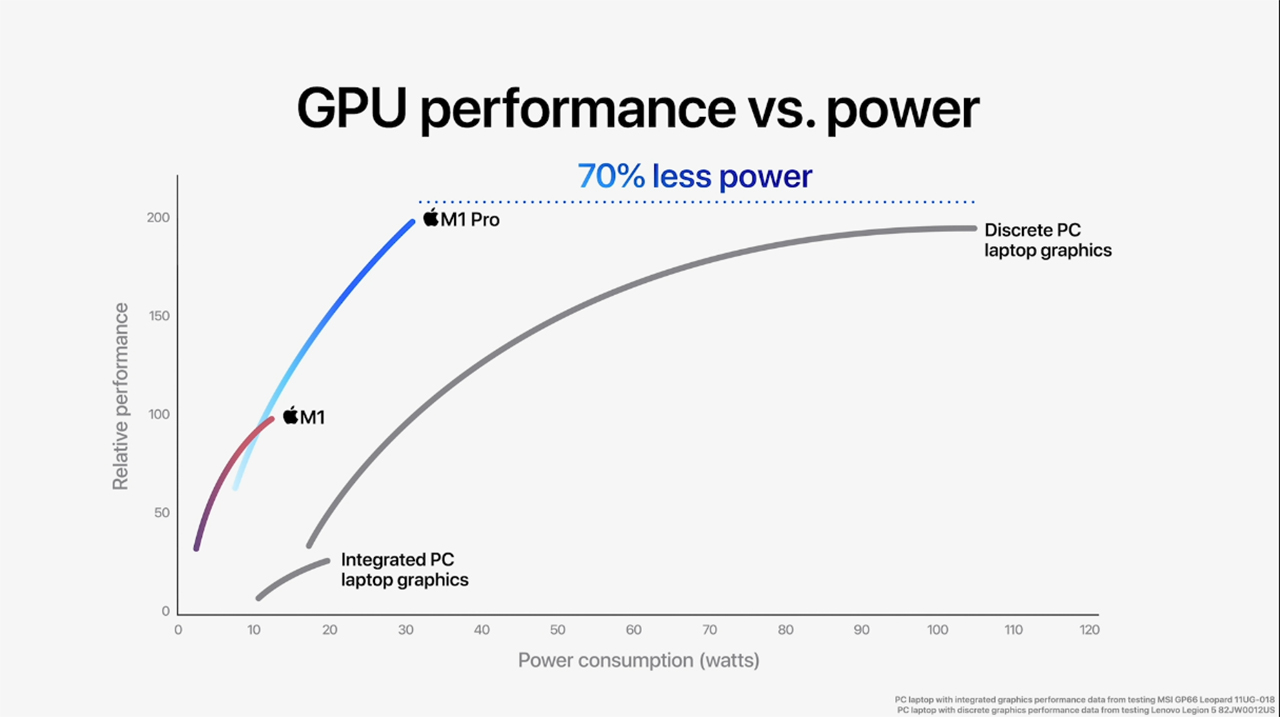Apple has updated its Canadian store with refurbished M1 Pro and M1 Max-powered MacBook Pro models.
Revealed only a few months ago, Apple’s M1 Pro and M1 Max MacBook Pro mark a return to form for the tech giant’s MacBook line. As expected, these refurbished models only cut a few hundred dollars of the typical retail cost of the new MacBook Pro.
For example, the 14-inch MacBook Pro with an M1 Pro (8-core CPU/14-core GPU) and a 512GB SSD costs $2,249 ($250 off), and the 16-inch MacBook Pro with an M1 Max chip (10-core CPU/32-core GPU) with a 1TB SSD costs $3,959 ($440 off). On average, the refurbished discount for these particular MacBook Pro models comes in between $250 and $440 depending on the laptop’s configuration.
You can find all of Apple’s refurbished M1 Pro/M1 Max MacBook Pro listings here.
Though the new laptop design is undeniably clunker than its predecessor, it offers ample ports, including an HDMI and an SD card port, minimized display bezels and even a 120Hz screen refresh rate. For more on the new MacBook Pro (2021), check out my in-depth review of the laptop.
Despite their not very steep discount, Apple’s refurbished products have an excellent reputation and, in most cases, look nearly brand new. With this in mind, taking the refurbished route is a great way to save a few hundred dollars off an Apple device if you’re hunting for a discount.
MobileSyrup utilizes affiliate partnerships. These partnerships do not influence our editorial content, though we may earn a commission on purchases made via these links that helps fund the journalism provided free on our website.
Source: Apple Via: iPhone in Canada






